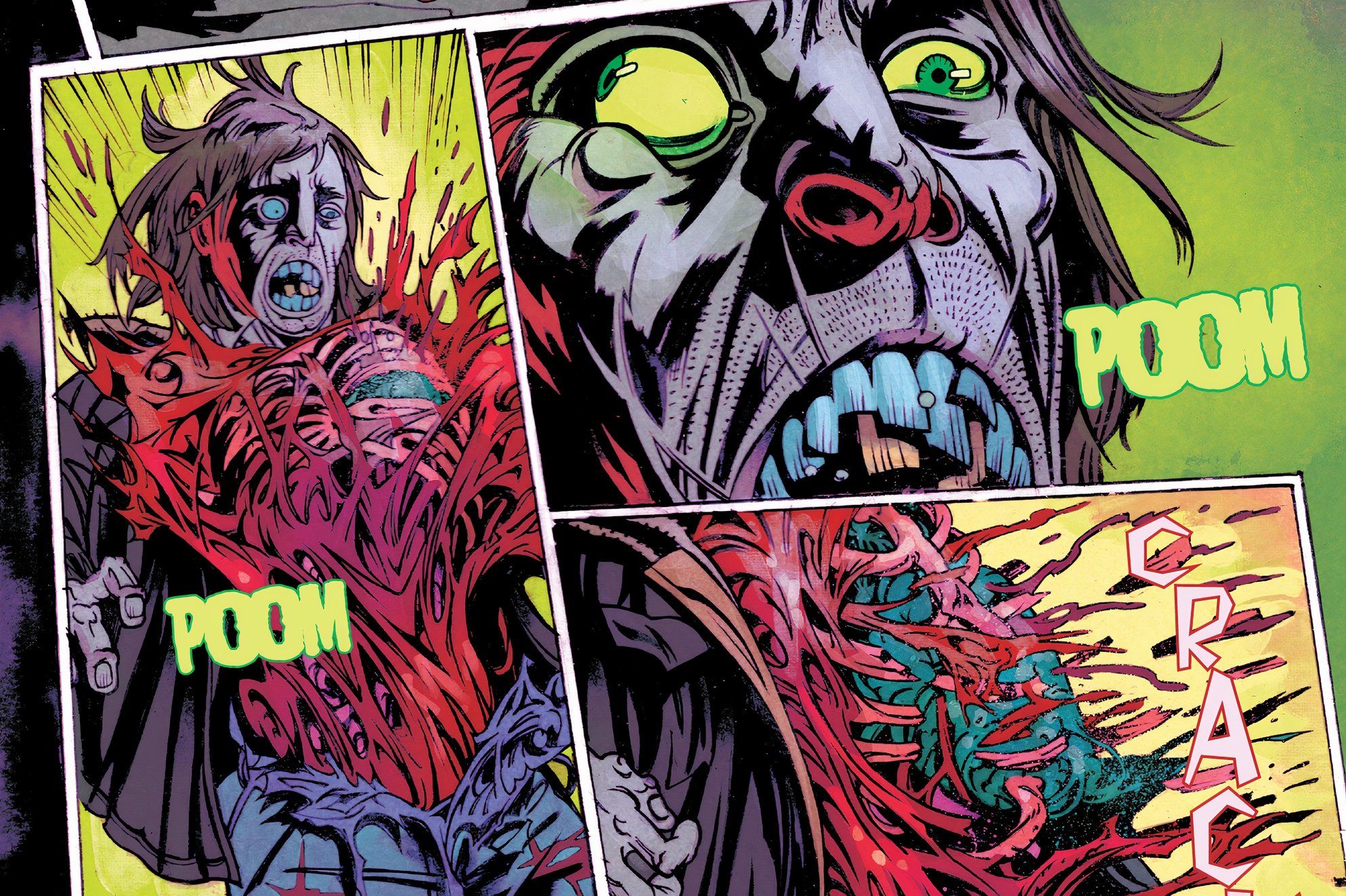When Star Trek: Discovery returns for season 5, it must clarify the status of Augments and their rights in the 32nd century. The United Federation of Planets is resurgent in Star Trek: Discovery‘s far future after Captain Michael Burnham’s (Sonequa Martin-Green) back-to-back wins of solving the mystery of The Burn and stopping the galactic threat posed by the Dark Matter Anomaly. However, the progress of genetically engineered people is currently an unsolved 32nd-century mystery.
Khan Noonien Singh (Ricardo Montalbán) introduced the menace of Augments to Star Trek in The Original Series. Khan was a genetically-engineered ‘superman’ from the late 20th century, an era that marked Earth devastated by the Eugenics Wars. In order to prevent the creation of another Khan, eugenics was banned, first on Earth, and later by the United Federation of Planets. Star Trek: Strange New Worlds and Star Trek: Prodigy each deal with the rights of Augments in the 23rd and 24th centuries, following the revelation on Star Trek: Deep Space Nine that Dr. Julian Bashir (Alexander Siddig) was genetically engineered.
Discovery Must Clarify The 32nd Century Status Of Augments

Star Trek: Discovery season 5 needs to follow suit and clarify what the state of genetically engineered people is in the 32nd century. Specifically, are Augments still banned by the Federation hundreds of years later? Does the Federation still fear the rise of another Khan? So much has changed in the 32nd century, such as technology like programmable matter, and the Federation itself was drastically weakened for over a century by The Burn. But amidst the chaos and uncertainty in the distant future, does the Federation still not recognize the rights of people who turn to eugenics, or races such as the Illyrians who culturally practice genetic engineering?
Lt. Commander Una Chin-Riley (Rebecca Romijn) on Strange New Worlds has the misfortune of being an Augment in the less tolerant 23rd century, and this is still years before Khan was reawakened to wreak havoc on the USS Enterprise. Thanks to Vice Admiral Kathryn Janeway (Kate Mulgrew) advocating for Dal R’El (Brett Gray) on Star Trek: Prodigy, however, there are hopeful signs that the Federation will start to look at Augments in a new light. With so much focus on the genetically engineered in Star Trek currently, Star Trek: Discovery has to give an update on the rights of Augments in the 32nd century.
Why The Federation Banned Augments But Not Androids And Cyborgs

Considering acceptance and unity among myriad species are the cornerstone tenets of the Federation, the treatment of Augments has always been a black stain on its shining armor. Genetically engineered people aren’t allowed to join Starfleet and races that practice eugenics aren’t recognized by the Federation, even if they do so for peaceful means or for medical reasons. Earth, and as a result, the Federation, was left so scarred by the Eugenics Wars and the fear of Khan that it ostracized an untold number of people over hundreds of years while still accepting artificially intelligent beings like the android Commander Data (Brent Spiner).
However, the Federation did ban synthetic lifeforms for about 15 years in the late 24th century. Star Trek: Picard revealed a plot orchestrated by the Romulan Zhat Vash that led to the Federation issuing a blanket prohibition on artificial beings so that androids like Dahj and Soji (Isa Briones) had to be built in secret, while synthetic technology outlawed by the Federation led to the death of Captain Will Riker’s (Jonathan Frakes) son, Thaddeus, from an otherwise curable disease. Star Trek: Discovery is now so many hundreds of years beyond the mistakes of the past that, hopefully, the Federation of the 32nd century has granted Augments the rights they’ve long deserved.
Star Trek: Discovery Season 5 is expected to premiere in 2023 on Paramount+.





